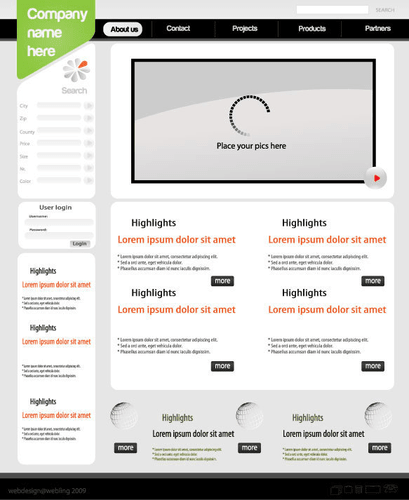
As you navigate budgeting and cost control in your startup, Legal E-Billing remember that every dollar saved can be reinvested into your startup’s growth. Having access to comprehensive financial reports in startup accounting enables founders of tech companies to evaluate the performance of different aspects of their business and strategize accordingly. Tech startups, especially those offering software as a service (SaaS), face unique challenges in revenue recognition.
Risk & compliance management
With significant investments in product development, marketing, and other growth-related expenses, it is imperative for tech companies to maintain reliable accounting processes. Tech companies often generate revenue through recurring streams, such as subscription-based services or software licensing. These revenue streams are subject to fluctuations based on factors like customer adoption, renewals, and market dynamics. Consequently, accurately reporting revenue in financial statements becomes crucial to reflect the true financial health of the business. Although accounting might not be a top priority for many tech founders, neglecting it can be a costly mistake. By implementing best accounting practices tailored to tech companies, founders can unlock hidden efficiencies within their business operations.
- As tech companies grow, they need the right tools to handle their money matters efficiently.
- Companies operating internationally must navigate these differences to maintain compliance and consistency.
- However, for tech companies, technology industry accounting is crucial for managing financial data and ensuring compliance with GAAP standards.
- Certain services may not be available to attest clients under the rules and regulations of public accounting.
Disclosure in Financial Reports
The shift towards cloud computing and Software as a Service (SaaS) models has also influenced how technology companies capitalize software development costs. With cloud-based services, companies are more likely to expense the costs as they are incurred due to the ongoing nature of SaaS updates and maintenance. This contrasts with capitalized costs more common in traditional software development, where there is a clearly defined project with a start and end date leading to the creation of a distinct software product. Technology companies often face the challenge of differentiating between costs that should be capitalized versus those that should be expensed when it comes to software development.
Media Solutions
Maintaining good records of all transactions, including invoices, receipts, and payments, is essential for startups. Accountants play a vital role in ensuring that businesses maintain accurate records and stay on top of their financial management. When transitioning a business from in-house to outsourced accounting, companies must ensure a smooth handover process. Tech startups often have significant intangible assets, such as intellectual property (IP), software, and patents.

- Deloitte’s Technology Industry Accounting Guide can help accounting and reporting teams navigate the most pressing issues they face.
- Whether you’re navigating the early stages of your startup journey or scaling at an accelerated pace, our strategic tax advice is designed to support your goals.
- Instead, several elements may be involved that require the separation into performance obligations, such as the sale of hardware, the provision of software, and other features, all recognised at different points.
- This is integral when accounting for complex transactions and agreements common in tech industries.
- In today’s fast-paced business environment, the synergy between accounting and IT facilitates better data management and decision-making processes.
- Reimagining accounting goes beyond compliance—it’s a step towards driving your tech company’s growth.
In contrast, under the agile development model, feasibility may be determined after certain iterations or sprints. A practical understanding of this principle is essential for adherence to global standards such as those outlined in the ASC 606 software revenue recognition by PwC. Adopting this accounting method means that the business must account for revenue when it is earned, which gives leaders a more precise understanding of their future cash flows. Accountants in startups do more than crunch numbers; they are financial strategists who provide valuable insights into your business’s …

Accounting for Tech Startups: Key Financial Metrics
- Selecting the appropriate amortization method ensures expenses are matched with the revenues generated by the software.
- However, tax workflows have historically suffered from cumbersome, manual processes.
- Secondly, it significantly reduces the probability of human error by automating mundane tasks.
- Implement our API within your platform to provide your clients with accounting services.
- Revenue recognition for all software licensing requires contract performance obligations to be completed before being recognized as revenue.
- Most technology companies in the U.S. adhere to Generally Accepted Accounting Principles (GAAP), while international firms often follow International Financial Reporting Standards (IFRS).
Initially, capitalizing software development costs leads to higher net income since expenses are not immediately recognized. In contrast, expensed costs are deducted from revenue in the period they occur, which can result in lower net income during the development stage. Over time, amortized costs gradually impact the income statement, reflecting the consumption of the asset’s economic benefits. In conclusion, accounting for tech companies presents a unique set of challenges and complexities, requiring a tailored approach to effectively manage their financial operations. As tech companies evolve and attract external investments, they must transition from basic cash accounting methods to adopting Generally Accepted Accounting Principles (GAAP) and accrual accounting.

By producing technology accounting for tech companies capabilities instead of just using them, financial analysts can fully explore their analytical curiosities while creating more differentiated, high-value analyses. For example, a financial and accounting analyst at a different insurance company built developer skills by participating in her organization’s enterprise citizen developer program. She leveraged a structured training course that allowed her to easily follow along and implement her learning alongside her daily work. But her success can primarily be attributed to her ability to identify her own digital opportunities, such as turning roadblocks in her daily responsibilities into impactful use cases for digital tools.
Conversely, accrual accounting aligns with GAAP standards and offers a nuanced understanding of financial conditions, making it suitable adjusting entries for businesses that need detailed analyses for strategic planning. The primary downside is its complexity, requiring skilled financial management and potentially higher costs. Startups and early-stage companies that are either garage startups or venture capital financed need excellent cash flow management control for survival.

